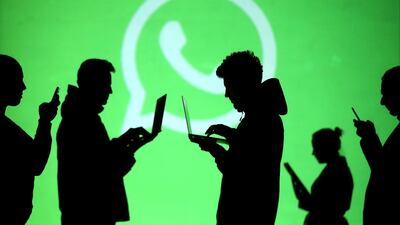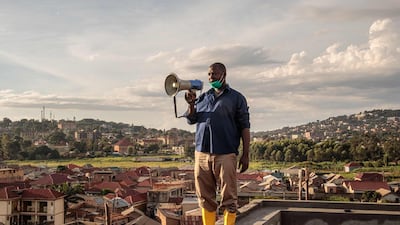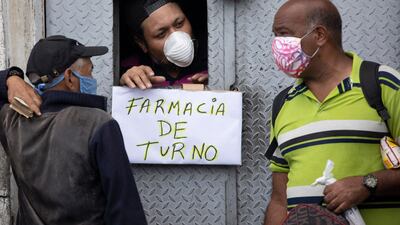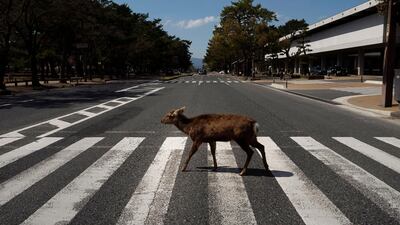The message pings in from a family member, colleague or friend. The story is shocking, its facts reinforced in capitals and the source, it says, has access to high-level information. Exclamation mark.
This format, or variations of it, has been used to spread countless rumours across social media platforms, most recently in response to the outbreak of Covid-19.
One message, widely debunked by doctors, suggests people test for the virus by seeing whether they can hold their breath for more than 10 seconds without coughing. Others tout so-called “natural cures” like eating ginger and garlic or sipping hot water slowly.
At a time when reliable information is vital to navigate a global public health emergency, details on diagnosis and treatment are being crowded out by a flood of false narratives like these. On April Fools day, governments in Thailand, Germany, India, Taiwan and elsewhere, have issued stern warnings against potential pranksters looking to turn the situation into a joke, with several threatening fines or jail time.
Some of the most troubling and widely shared posts mix medical fact with misinformation. One, claiming a runny nose means a common cold and isn’t a symptom of coronavirus pneumonia, was shared more than 300,000 times on social media before it was amended, according to Tom Philips, an editor at Full Fact.
The UK-based fact checking agency, which has seen a number of false claims in social media posts shared "tens or even hundreds of thousands of times," recently published a step-by-step guide to help people identify misinformation.
"Bad information ruins lives. In the case of the new coronavirus, misinformation poses a serious threat to people's health," Mr Philips told The National. "Amid the current outbreak, the stakes are high — members of the public depend on news outlets and political leaders when making potentially life-saving decisions."
Conspiracy theories have also multiplied, stoking political tensions and fuelling racism. Erroneous claims about the origins of the virus — a US bioweapon, a Chinese lab — contribute to the alarm surrounding an already-frightening situation.
“We’re not just fighting an epidemic; we’re fighting an infodemic,” World Health Organisation Director-General Tedros Adhanom Ghebreyesus said in February.
Since then, calls from health experts and government officials to contain the barrage of disinformation have become increasingly urgent as the coronavirus affects more people, and death tolls rise in countries around the world.
In the UK, MPs have called on the public to send in evidence of fake news about the coronavirus. Irish Prime Minister Leo Varadkar has urged people “to please stop sharing unverified info on WhatsApp groups. These messages are scaring and confusing people and causing real damage.”
Gulf states have taken a tough stance. Oman has charged a number of people with disseminating rumours related to the virus and UAE attorney general Dr Hamad Saif Al Shamsi warned last month that "spreading fake information and rumours is a crime punishable by law."
Kuwaiti academics said that circulating rumours could undermine efforts to handle the pandemic in the country, which has also launched legal proceedings against people accused of spreading misinformation about the virus.
“The state has to be firm, especially during the current delicate time,” Massouma al Mubarak, professor of political science at the Kuwait University said in a report published by state news agency Kuna on Sunday.
Even posts that appear harmless — like a message purporting to be from Bill Gates encouraging people to reflect positively on their lives during the crisis — can have a detrimental impact.
“When we’re basing our beliefs and behaviours on false information, even seemingly innocuous false claims, that itself can have serious ramifications,” Ellen Judson, researcher at the Centre for the Analysis of Social Media at the think tank Demos, said.
"Misinformation, which can often go viral, may also be shared much more than true information, meaning that it risks crowding out true information and undermining how well the correct information can get through to the people who need to see it," she told The National.
The World Health Organisation now has a myth-busting list that answers queries including, "are hand dryers effective in killing the new coronavirus" and "can spraying alcohol or chlorine all over your body kill the new coronavirus."
Social media platforms have also stepped up efforts to monitor and remove misleading posts. Twitter has broadened its definition of harmful tweets “to address content that goes directly against guidance from authoritative sources of global and local public health information.”
Facebook has adjusted its algorithms to promote official accounts and removed false content about coronavirus, including a video by Brazilian leader Jair Bolsonaro that promoted the use of anti-malaria drug hydroxychloroquine and criticised social distancing measures in the country.
But a significant proportion of the false narratives surrounding coronavirus are being forwarded on WhatsApp, which is harder to monitor. “Messages are private, so it is only through people not sharing, or challenging these messages either on or off the platform that the rumours can be dissipated,” Dr Samantha Vanderslott, social sciences researcher at the Oxford Vaccine Group, said.
For users, there are various indicators that a post could be wholly or partially fake.
"If the story appears to claim a much higher level of certainty in its advice and arguments than other stories, this is questionable. People will be seeking certainty in a time of high uncertainty, anxiety and panic. So it is only natural to more readily accept information that resolves, reassures and provides easy solutions – unfortunately, often in a false way," she told The National.
Full Fact also warns against the provocative tendencies of false news. “We advise people to be especially wary of information which elicits a strong emotional reaction.” Mr Philips said. “Often, malicious actors can manipulate our emotions in order to spread misinformation.”
The agency’s checklist points to “little clues” common to messages pedalling fake narratives, including phony URLs, bad spelling, awkward layouts, strange articles and Twitter handles that don’t match the name on the account.
“Covid-19 is still a new disease and there is a lot we don’t yet know about it, and so be wary of anything that seems to be making a definite claim about the illness without clear evidence,” the list warns.
It also advises people to consider the origins of the post.
"If it comes from an unnamed source like a friend of a friend or a colleague's uncle then you should be wary and go looking for more information,” Mr Philips continued.
“It’s natural to want to share information that we think might keep our family and friends safe. But if we share bad information, we may end up putting them at greater risk.”

















